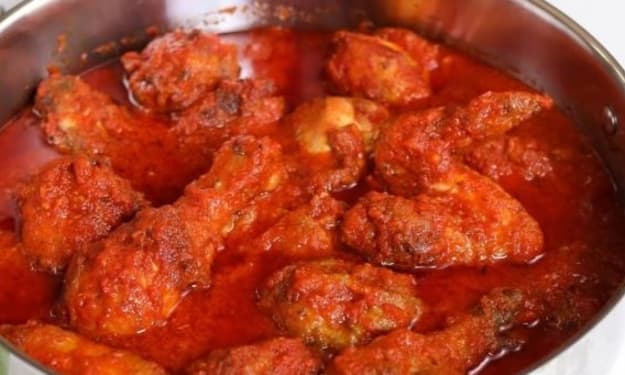The Dreaded Yellow Fly
Florida living is great except for hurricanes and yellow flies!

Introduction:
Yellow flies in Florida can be a persistent and painful annoyance, especially the biting females. Their bites often result in swelling and itching, causing discomfort and potential infection. In this comprehensive guide, we will explore effective solutions for yellow fly bites and provide practical tips to protect yourself from these relentless pests. From homemade remedies to personal protective measures, we have you covered. Stay informed and be prepared to tackle yellow flies head-on.
Homemade Solution for Yellow Fly Bites:
When it comes to soothing yellow fly bites, a homemade solution can be a handy remedy. Prepare this simple recipe in advance and keep it in your refrigerator for immediate relief:
Yellow Fly Bite Relief Recipe:
- 1 tsp. Baking Soda
- 1/3 cup ammonia
- 1/3 tsp. Meat Tenderizer
- 1 crushed aspirin
Mix these ingredients thoroughly and store the mixture in the refrigerator. This homemade remedy can provide relief from itching and pain for approximately 30 days, ensuring you have a quick solution at hand whenever you encounter yellow flies.
Instant Relief with Water and Microwave:
Another effective method to alleviate the discomfort of yellow fly bites is through the use of water and a microwave. Follow these steps for instant relief:
1. Wet a paper towel and fold it.
2. Place the folded wet paper towel in the microwave for 30 seconds.
3. Check the temperature to ensure it is comfortably hot but not scalding.
4. Gently apply the warm paper towel directly onto the bite, allowing the heat to provide relief from itching and discomfort.
This simple technique can offer immediate relief, soothing the affected area and minimizing the urge to scratch.
Personal Protective Measures:
Prevention is key when it comes to yellow fly bites. By adopting personal protective measures, you can significantly reduce your risk of being bitten. Here are some effective ways to safeguard yourself:
1. Repellents: Apply insect repellents containing DEET to exposed skin. DEET-based repellents have been found to be highly effective against yellow flies.
2. Physical Barriers: When venturing into areas with high yellow fly populations, wear protective clothing such as long-sleeve shirts, long pants, and a head net. This creates a physical barrier between your skin and the biting flies, reducing the chances of being bitten.
3. Timing: Yellow flies are most active during the late afternoon and on cloudy days. If possible, plan outdoor activities during less active times to minimize your exposure to these pests.
4. Avoid Fragrances: Yellow flies are attracted to fragrances, so try to avoid using scented soaps, lotions, or perfumes when spending time outdoors.
By implementing these personal protective measures, you can enjoy the outdoors in Florida while minimizing the risk of yellow fly bites.
Understanding Yellow Fly Bites:
Yellow flies, particularly the female ones, are notorious for their painful bites. These bites can result in swollen and itchy welts, which, if left untreated, can lead to infection. It's important to understand the nature of yellow fly bites to effectively manage them.
Yellow flies inject anticoagulant-containing saliva when they bite, which may cause severe reactions in individuals who are highly allergic to these compounds. If you experience symptoms such as difficulty breathing, dizziness, or widespread swelling, seek immediate medical attention.
Common symptoms of yellow fly bites include itching, redness, and swelling. To prevent infection, keep the bite clean and apply a medical skin ointment as recommended by healthcare professionals.
Habitats and Seasons:
Yellow flies in Florida are often found in areas with water that promote dampness, including forests. However, they are not limited to these habitats and can be encountered in various locations. According to the University of Florida, yellow flies are most active from March to November, with their peak season typically occurring from April through June. Understanding their preferred habitats and peak activity periods can help you be more vigilant and take necessary precautions during these times.
Effective Management Strategies:
Managing yellow flies can be challenging, but with the right strategies, you can minimize their impact. Consider the following approaches:
1. Traps: Yellow fly traps can be somewhat effective in reducing their population. Look for traps specifically designed for yellow flies and place them strategically in areas where you spend time outdoors.
2. Eliminate Standing Water: Yellow flies are attracted to areas with standing water, so removing or treating these water sources can help decrease their presence. Regularly empty and clean containers, birdbaths, and other potential breeding sites.
3. Habitat Modification: If you have a yard or outdoor area, consider modifying the landscape to discourage yellow flies. Trim overgrown vegetation, maintain proper drainage, and minimize areas of excessive moisture.
4. Professional Pest Control: In severe infestations, it may be necessary to seek assistance from professional pest control services. They have the expertise and resources to effectively manage yellow fly populations.
By implementing these management strategies, you can create a less inviting environment for yellow flies and reduce their impact on your outdoor activities.
Natural Fly Repellents:
If you prefer natural alternatives to chemical repellents, there are some options to repel yellow flies. One such solution is a mixture of original Pine-Sol and water. Create a 50/50 mixture by combining equal parts Pine-Sol and water, and then transfer it to a spray bottle. Use this solution to wipe countertops or spray it on your porch, patio table, and furniture to repel flies, including yellow flies. While natural repellents may not be as long-lasting as chemical options, they can provide temporary relief and help deter yellow flies from landing on treated surfaces.
Enjoying the Outdoors with Peace of Mind:
Although yellow flies can be a nuisance, they should not deter you from enjoying the beautiful outdoor spaces Florida has to offer. By incorporating the suggested solutions and prevention tips into your routine, you can minimize the risk of yellow fly bites and make your outdoor experiences more pleasant. Remember to stay vigilant during peak activity periods, apply repellents, and use protective clothing as necessary. With these strategies in place, you can explore Florida's natural wonders with peace of mind, knowing you are well-prepared to combat yellow flies.
Conclusion:
Yellow flies can be a significant annoyance in Florida, but by taking proactive measures and following effective solutions, you can mitigate their impact on your outdoor activities. From homemade remedies to personal protective measures and management strategies, you now have a comprehensive understanding of how to deal with yellow flies. Stay informed, be prepared, and enjoy the vibrant outdoor offerings of Florida without the constant worry of yellow fly bites.






Comments
There are no comments for this story
Be the first to respond and start the conversation.